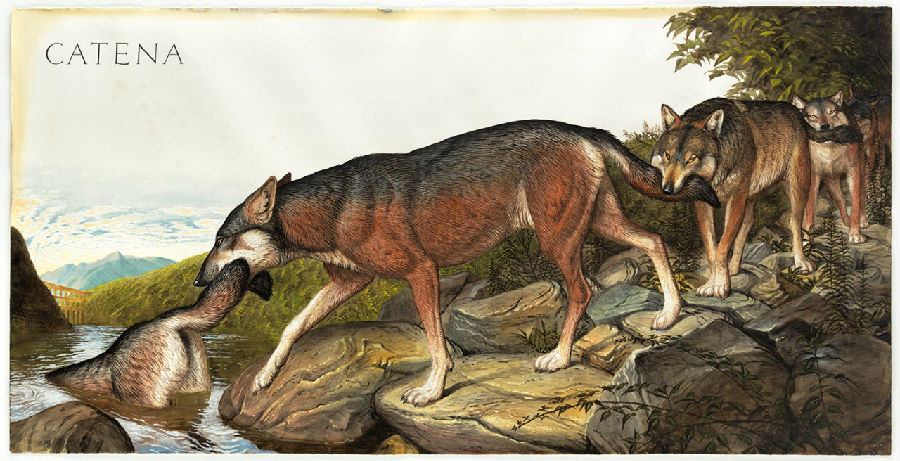AMNA NAWAZ: Tonight's Brief But Spectacular features painter Walton Ford, whose work examines our relationship to animals in the wild, who, as he puts it, would rather be left alone. This episode is part of our ongoing arts and culture series, Canvas.
WALTON FORD, Painter: I make very large watercolors. Half the time you're at the zoo, you're saying, oh, man, those things are a lot weirder-looking than thought, or that's a lot bigger than I thought it was, or those are smaller than I remembered them. So I put them right in your face. And when you go to the show, you really do feel that. Everybody gets a little overwhelmed when they're faced with one of these things. Growing up in the suburbs, I felt like everything was manicured. I had a fantasy about being immersed in the wild. And going to the Museum of Natural History, I would lose myself in those dioramas. And I would bring a sketchbook, even when I was a little kid, and draw the animals in the museum dioramas and just lose myself in that. That's the first stuff that I did. That's the stuff that came out from inside of me. That was my, that was what was there. Then I went to art school. It didn't feel cool. It's easy to have contempt for what you're really good at. And what I was really good at was drawing and painting in a rather traditional way, and also thinking and relating to animals in the natural world. The art world had no place for somebody who was making work like this. After I got out of Rhode Island School of Design, trying to be a sort of artist that I wasn't, and I returned to the stuff that I did when I was a kid, that's actually when things started really going well for me. I look at my work as a sort of meditation on the sort of cultural history of our relationship with animals, especially animals that would rather be left alone. Because my subject matter can be grim, the best paintings that I make have a sort of dark humor in them. Sir Richard Burton, the African explorer, kept a collection of monkeys.

He gave them all human roles, anthropomorphic roles. I deliberately altered the behavior of the monkey to accommodate Richard Burton's twisted view of how he was training these monkeys and learning their language. And so those paintings could be as heavy or as light as you want them to be, because they are amusing to look at. Well, I have a series of paintings I have been more working on for many years about a female black panther that escaped from the Zurich Zoo in 1933. She was loose in the Swiss countryside in the dead of winter for, like, 10 weeks. That's the kind of thing I'm looking for. I'm looking for stories that are so much better than stuff that I could make up. And then I'm making stuff up from that place. My name is Walton Ford, and this is my Brief But Spectacular take on the imagined animal.












